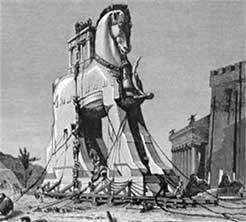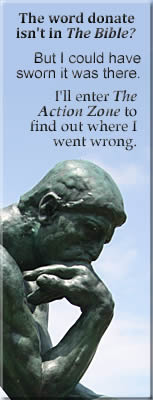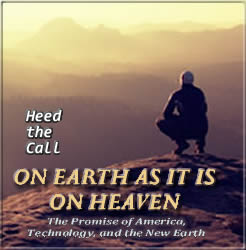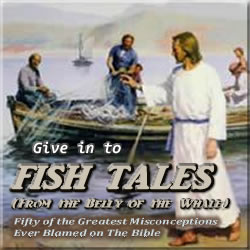Dawn of a New Age
The Unlikely Birth of a Science
For most people, archeology is simply the study of a remote past, something which has no relevance to the way we live in the present; but archeology is much more than collecting artifacts from a long forgotten past.
Actually, the implications of this intriguing science have a continuing influence on our modern mentality. In fact, the power of the past to shape the present is something we’re all confronted with on a daily basis; it’s just not something we’re conscious of.
Fortunately, we in the West are the unexpected beneficiaries of the many remarkable discoveries, which archeology has brought to us in the last one hundred and fifty years. Ancient artifacts continue to shed new light on antiquated notions of our past. Manuscripts, which when translated, examined, and compared to other similar texts, provide startling, insight into some of the most remote periods of antiquity. Because science demands empirical evidence, archeology will provide the most formidable tool of apologetics.
History is filled with countless cultural details which reveal just how unique our Western civilization is. Now, more than ever, it is time to pick up our history books from off the shelf. It’s time we dust off these neglected works, and uncover the facts behind the artifacts.
Story Continues Below
Says Richard Price—the founder and CEO of Academia.edu—on his podcast In Depth With Academia:
Fish Tales (From the Belly of the Whale): Fifty of the Greatest Misconceptions Ever Blamed on The Bible is:
To hear Price’s book review of Fish Tales (From the Belly of the Whale), CLICK HERE.
To hear Kent and Zen Garcia talk about correcting biblical misconceptions, from June 23rd, 2021, CLICK BELOW.
Story Continues From Above
Until the mid-1800s, no serious scholar actually believed that the ancient Greek, Homer, was speaking of genuine, historical events when he described the infamous fall of Troy in his epic poems, The Iliad and The Odyssey. But in 1829, a seven year old boy by the name of Heinrich Schliemann received an illustrated book about the legendary city of Troy.
Years later, Schliemann would remember it as the turning point in his life. The images of the burning city of gold fueled his imagination from the first moment he laid eyes on them. Hardly a day would pass without his dreaming of uncovering the walls of Troy. He dedicated his entire life to this quest, amassing great wealth as a merchant. In 1870, he began excavating. Throughout a lifetime of bitter struggle, he never lost his child-like ability to see beyond the myths.1
Then, in 1876, after so many years of enterprise and effort, legend became history when Schliemann uncovered the ancient remains of the buried city. The gold of Troy, just as he had imagined as a young boy, once again, shined brightly in the light of day. Within months, the ancient Greek capital of Mycenae had given up the royal treasures of Agamemnon. Lord William Taylor declared, “he had discovered a new world for archeology, and a forgotten civilization was reborn.”2
Almost overnight, archeology began to take shape, all through the power of the imagination. “The most unscientific of archeologists,” said Robert Payne in The Gold of Troy, “Heinrich Schliemann founded the modern science of archeology.”3







